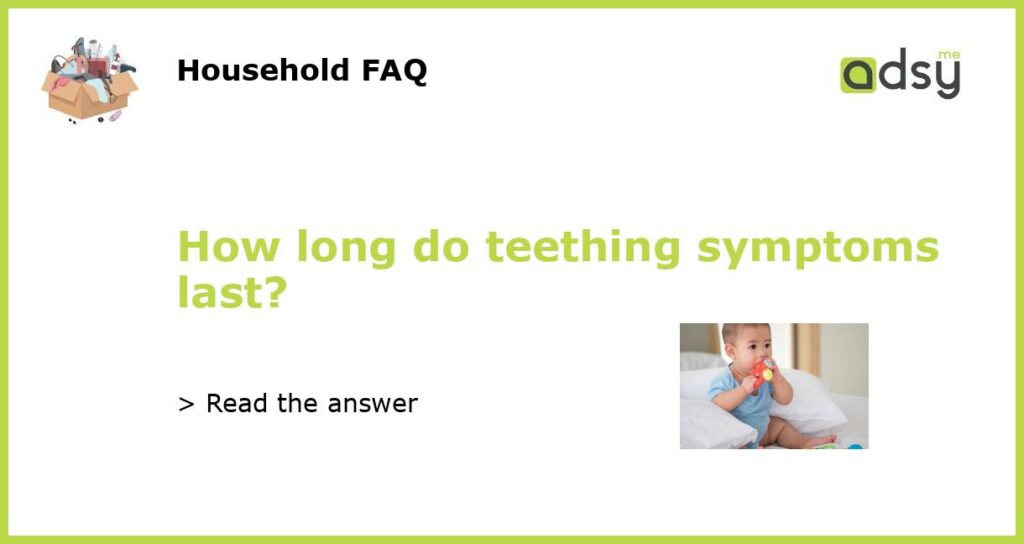Teething Symptoms: How Long Do They Last?
Babies usually start teething around the age of 6 months, although the timing can vary. As teeth begin to push through the gums, it is common for infants to experience a range of symptoms. These symptoms can be distressing for both the baby and the parents, so it is natural to wonder how long they will last. While the teething process is different for every child, there are some general guidelines on the duration of teething symptoms.
Understanding the Teething Process
Teething is a natural part of a baby’s development. It is the process of primary teeth breaking through the gums to emerge, allowing babies to start their journey into solid food. While the timing of teething varies, it typically begins between the ages of 6 to 12 months and can continue until the child is 2 to 3 years old.
The teething process occurs in several stages, with each stage lasting for several weeks. Initially, the teeth begin to move beneath the gums, causing discomfort and eventually leading to the eruption of the tooth through the gumline. During this time, babies may experience various symptoms.
Common Teething Symptoms
Teething symptoms can vary from child to child, but some common signs include:
- Irritability and moodiness
- Drooling
- Gum swelling and sensitivity
- Chewing on objects
- Loss of appetite
- Difficulty sleeping
- Ear-rubbing and cheek-rubbing
Some babies may also develop a low-grade fever or experience diarrhea during teething, although these symptoms are not directly caused by teething and should be evaluated by a healthcare professional if they persist or worsen.
Duration of Teething Symptoms
The duration of teething symptoms can vary widely. Some lucky babies may not experience any noticeable symptoms, while others may have symptoms that last for several weeks or months. On average, teething symptoms can last for about 4 to 7 days before subsiding.
However, it is important to note that teething is an ongoing process, and symptoms may come and go as new teeth continue to emerge. It is not uncommon for a baby to experience intermittent bouts of discomfort throughout the teething period, especially during the eruption of molars, which usually occurs between 13 to 33 months of age.
Coping with Teething Symptoms
While teething symptoms can be distressing, there are several measures you can take to help your baby feel more comfortable:
- Gently massage the baby’s gums with a clean finger or a cool teething ring to provide relief.
- Offer chilled or cold items, such as a teething ring or a damp washcloth, to help numb the gums.
- Give your baby safe items to chew on, such as rubber rings or silicone teethers, to help alleviate the discomfort.
- Use over-the-counter teething gels or pain relievers, following the instructions provided and consulting with your pediatrician.
- Provide plenty of love, cuddles, and distraction to help soothe your baby during this challenging period.
When to Consult a Healthcare Professional
While teething is a natural process, there are instances where it may be necessary to seek medical advice. You should consult a healthcare professional if:
- Your baby’s fever exceeds 101 degrees Fahrenheit (38.3 degrees Celsius).
- Your baby exhibits severe and prolonged irritability or discomfort.
- Your baby refuses to eat or drink for an extended period.
- Your baby’s gums are excessively swollen, bleeding, or showing signs of infection.
- Your baby experiences diarrhea that lasts for more than a few days.
Remember, every baby is different, and their teething experience will be unique. By understanding the teething process and being prepared to support your baby during this time, you can help alleviate their discomfort and make the teething journey a little easier for both of you!






